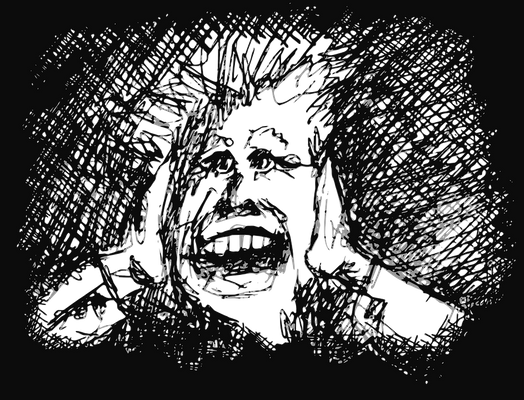4.2.2
Fantasy & Reality
Fantasy and Reality
Fantasy and Reality
Throughout the play, there is a blurring of fantasy and reality. This is seen most of all in Blanche DuBois. Blanche is a fantasist and is unable to cope with reality.


Blanche's fantasy world
Blanche's fantasy world
- Blanche makes an allegorical journey in the streetcar called Desire at the very beginning of the play.
- The car passes through the cemeteries (which could represent Blanche’s prior life of alcoholism and promiscuity) to end up at the Kowalski’s at Elysian Fields.
- Elysian Fields has the sound of wonder about it – that a heavenly state has been reached.


Harsh reality for Blanche
Harsh reality for Blanche
- However, Blanche finds that in reality, Elysian Fields is not a heavenly state. She cannot even properly reach death.
- There will be several years of mental torment and suffering before that happens. In the end, Blanche enters the mental institution because she clearly cannot tell the difference between fantasy and reality.


Avoiding reality
Avoiding reality
- All the way through the play, the audience sees that Blanche does not want reality. She is a creative and poetic soul constantly seeking fantasy, escape, Bohemia and fantasy.
- Part of this might be derived from her "Southern Belle" upbringing, which may have distanced her from the realities of life. This is the reason why Blanche is rarely seen in full light. She constantly escapes to the shadows so that she is not fully exposed to reality or exposing her true soul to reality.


Blanche's fate
Blanche's fate
- Because she will be locked away from the rest of society, her punishment will be more extreme than death.
- In the mental institution, Blanche will have to face the reality of herself; something the audience knows will be tortuous.


Blanche and Mitch
Blanche and Mitch
- Blanche has a fantasy about the world she has with Mitch but the reality is much different.
- Mitch is a fantasist about how things might be with Blanche but when Stanley reveals the truth, reality dawns on him. But by the end, Mitch seems to have resorted back to a fantasy of him being with Blanche and somehow saving her. The tragedy is that he has already had his chance.
1Context & Overview
1.1The Author
1.2Social Context & Setting
2Scene Summaries
2.3Scene Three
2.5Scene Five
2.6Scene Six
2.7Scene Seven
2.9Scene Nine
2.10Scene Ten
3Character Profiles
3.1Blanche DuBois & Stanley Kowalski
3.2Stella Kowalski & Harold Mitchell (Mitch)
4Key Ideas
4.1Sex & Gender
4.2Appearances, Fantasy & Reality
5Writing Techniques
5.2Genre, Form & Language
6Critical Debates
6.1Early & Modern Reception
6.2Feminist, Psychoanalytic & Marxist Approach
7Ideas About Tragedy
7.1Ideas About Tragedy
8Recap: Main Quotes
8.1Main Quotes by Scene
8.1.1Scene One - Quotations
8.1.2Scene Two - Quotations
8.1.3Scene Three - Quotations
8.1.4Scene Four - Quotations
8.1.5Scene Five - Quotations
8.1.6Scene Six - Quotations
8.1.7Scene Seven - Quotations
8.1.8Scene Eight - Quotations
8.1.9Scene Nine - Quotations
8.1.10Scene Ten - Quotations
8.1.11Scene Eleven - Quotations
Jump to other topics
1Context & Overview
1.1The Author
1.2Social Context & Setting
2Scene Summaries
2.3Scene Three
2.5Scene Five
2.6Scene Six
2.7Scene Seven
2.9Scene Nine
2.10Scene Ten
3Character Profiles
3.1Blanche DuBois & Stanley Kowalski
3.2Stella Kowalski & Harold Mitchell (Mitch)
4Key Ideas
4.1Sex & Gender
4.2Appearances, Fantasy & Reality
5Writing Techniques
5.2Genre, Form & Language
6Critical Debates
6.1Early & Modern Reception
6.2Feminist, Psychoanalytic & Marxist Approach
7Ideas About Tragedy
7.1Ideas About Tragedy
8Recap: Main Quotes
8.1Main Quotes by Scene
8.1.1Scene One - Quotations
8.1.2Scene Two - Quotations
8.1.3Scene Three - Quotations
8.1.4Scene Four - Quotations
8.1.5Scene Five - Quotations
8.1.6Scene Six - Quotations
8.1.7Scene Seven - Quotations
8.1.8Scene Eight - Quotations
8.1.9Scene Nine - Quotations
8.1.10Scene Ten - Quotations
8.1.11Scene Eleven - Quotations
Unlock your full potential with Seneca Premium
Unlimited access to 10,000+ open-ended exam questions
Mini-mock exams based on your study history
Unlock 800+ premium courses & e-books